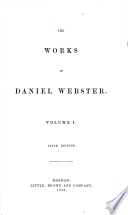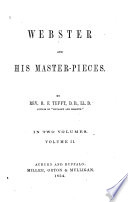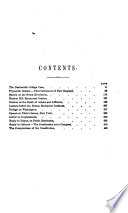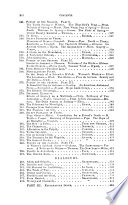 For the purpose of public instruction, we hold every man subject to taxation in proportion to his property, and we look not to the question whether he himself have or have not children to be benefited by the education for which he pays. We regard it as... For the purpose of public instruction, we hold every man subject to taxation in proportion to his property, and we look not to the question whether he himself have or have not children to be benefited by the education for which he pays. We regard it as...  The R.I. Schoolmaster - Page 2271861Full view The R.I. Schoolmaster - Page 2271861Full view - About this book
 | George William Rusden - Church and education - 1853 - 382 pages
...property, and we look not to the question whether he himself have, or have not children to benefit by the education for which he pays; we regard it as...measure, the extension of the penal code, by inspiring a salutary and conservative principle of virtue and of knowledge in an early age. " We hope to excite... | |
 | History, Modern - 1848 - 622 pages
...property, and we look not to the question, whether he himself have, or have not, children .to be benefited by the education for which he pays. We regard it as a wise and liberal sysiem of police, by which property, and life, and the peace of society are secured. We seek to prevent,... | |
 | Daniel Webster - 1853
...property, and we look not to the question, whether he himself have, or have not, children to be benefited by the education for which he pays. We regard it as a wise and libf The first free school established by law in the Plymouth Colony was in 1670-72. One of the early... | |
 | Benjamin Franklin Tefft - Legislators - 1854 - 560 pages
...property, and we look not to the question, whether he himself have, or have not, children to be benefitted by the education for which he pays. We regard it as...measure the extension of the penal code, by inspiring a salutary and conservative principle of virtue and of knowledge in an early age. We hope to excite a... | |
 | Benjamin Franklin Tefft - Legislators - 1854 - 554 pages
...children to be benefitted by the education for which he pays. We regard it as a wise and liberal systeiA of police, by which property, and life, and the peace of society are secured. We seek to prevent in softie measure the extension of the penal code, by inspiring a salutary and conservative principle... | |
 | George Barrell Cheever - History - 1854 - 304 pages
...this matter. In speaking on the subject of taxation for public education, Mr. Webster once said : " We seek to prevent, in some measure, the extension of the penal code, by inspiring a salutary and conservative principle of virtue and of- knowledge in an early age. By general instruction,... | |
 | Daniel Webster - 1854 - 640 pages
...property, and we look not to the question, whether he himself have, or have not, children to be benefited by the education for which he pays. We regard it as a wise and lib• Oratio pro Flacco, t) 1. t The first free school established by law in the Plymouth Colony was... | |
 | Thomas Dick - 1857 - 892 pages
...property ; and we look not to the question, whether he himself have or have not children to be benefited by the education for which he pays; we regard it as...which property and life, and the peace of society, are securei We hope to excite a feeling of respectability, and a sense of character, by enlarging the capacities... | |
 | Epes Sargent - American literature - 1857 - 490 pages
...property," and we look not to the question whether he himself have or have not children to be benefited by the education for which he pays. We regard it as...police," by which property and life and the peace of society92 are secured. We seek to prevent, in some measure, the extension of the penal" code," by inspiring... | |
| |